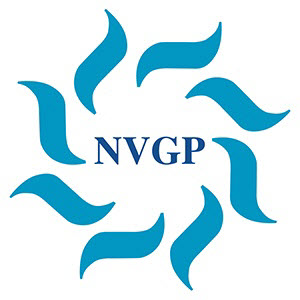Cognitive-behavioral Group Therapy versus Group Psychotherapy for Social Anxiety Disorder among College Students
Bjornsson, A.S., Bidwell, L.C., Brosse, A.L., Carey, G., Hauser, M., Mackiewicz Seghete, K.L., Craighead, W.E. (2011). Cognitive-behavioral group therapy versus group psychotherapy for social anxiety disorder among college students: a randomized controlled trial. Depression and Anxiety, 28 (11), 1034-1042.
Verslaggever Willem de Haas
Abstract
Objective: In this randomized controlled trial, cognitive–behavioral group therapy (CBGT) for social anxiety disorder (SAD) was compared to group psychotherapy (GPT), a credible, structurally equivalent control condition that included only nonspecific factors of group treatment (such as group dynamics). Methods: Participants were 45 college students at the University of Colorado with a primary diagnosis of SAD. Each treatment condition comprised eight group sessions lasting 2 hr each. Independent assessors (blind to treatment assignment) assessed participants at baseline and posttreatment with the Clinical Global Impression Scale (CGI) and the Liebowitz Social Anxiety Scale (LSAS). Results: Both treatments were found to be equally credible. There were five noncompleters in the CBGT condition (21.7%) and only one in the GPT condition (4.3%). There were no statistically significant differences posttreatment (controlling for pretreatment scores) between the two treatment conditions, and both treatments were found to be efficacious. Effect sizes for CBGT were similar to earlier studies, and adherence ratings revealed excellent adherence. Conclusions: Treatment of SAD appears to be moving toward individual CBT, partly because of high attrition rates and underutilization of group dynamics in group CBT. However, group therapy has unique therapeutic ingredients, and it may be too early to give up on group treatment altogether. Discussion of these findings included future directions with this treatment modality, especially whether these two types of group treatment could be combined and whether such combination might serve to decrease attrition, enhance efficacy, and facilitate dissemination.
Wat betekent dit voor de groepspsychotherapie en nvgp
In deze serieuze RCT worden Interpersoonlijke Groepstherapie (volgens Yalom/Leszcz) en protocollaire Cognitieve groepstherapie met elkaar vergeleken als behandeling voor Sociale angst (DSM Social Anxiety Disorder). In beide condities ging het om 8 therapiebijeenkomsten onder leiding van specialistisch geschoolde therapeuten. De resultaten laten zien dat beide groepstherapievormen effectief zijn en ook even goed (geen significant verschil). Bij de Cognitieve groepstherapie vallen meer deelnemers uit, maar hebben meer deelnemers een zeer hoge resultaatscore. De onderzoekers concluderen verder als beperkende factor dat de onderzoek aantallen misschien wat aan de kleine kant zijn en dat daarom herhaling is aan te bevelen.
Voor de Interpersoonlijke groepstherapie is dit een belangrijk bewijs voor de effectiviteit van deze therapie in de kortdurende vorm, en voor een omschreven stoornis.
Interessant zijn verder nog twee dingen: de onderzoekers zien groepstherapie als een therapie met uitsluitend non-specifieke therapeutische factoren. Werk aan de winkel om groepstherapie als een echte methode neer te zetten, die meer is dan dat. Aan het eind doen de onderzoekers de aanbeveling om de cognitieve groepstherapie en de Interpersoonlijke groepstherapie te combineren, een waardevolle gedachte die aansluit bij het beleid binnen de nvgp om protocollaire vormen van groepsbehandeling wat interactiever te maken door ons interactieve gedachtengoed aan te bieden en te integreren.
| Relevantie voor richtlijnen | O O O O O |
| Relevantie voor onderzoek | O O O O O |
| Relevantie voor groepsbehandeling | O O O O O |
| Relevantie voor teamcoaching | O O O O O |
| Relevantie voor groepsdynamicaopleiding | O O O O O |
| Relevantie voor groepstherapieopleiding | O O O O O |
| Relevantie voor KP opleiding/Psychiatrie opleiding | O O O O O |
